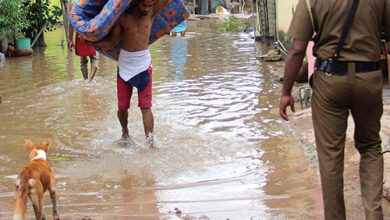Youth – a nation’s greatest asset – are at risk due to multiple crises impacting the island. With the current problems hampering their dreams, hopes and passions, the role of youth in nation building is facing the threat of decline.
DILEMMAS FACING THE YOUNG
Dona Senara calls for the welfare of the nation’s youth to be prioritised
As the island’s juvenile citizens begin to embody the power needed to foster the country’s development and bring forth social reforms, it is evident that they are the determinants of the nation’s outlook.
A severe shortage of foreign currency has crippled Sri Lanka’s economy, and left its people to deal with shortages of essentials such as fuel, medicines and food.
This unprecedented economic downturn that saw the Sri Lankan Rupee decline drastically triggered the situation that the country is facing today. With extensive power cuts and prices continuing to reach historic highs, people are left to battle for a living.
From COVID-19 to the economic crisis, the hurdles that young Sri Lankans have to overcome are on the rise. With lockdowns being imposed randomly and social unrest flaring up around the island, many academic postponements have disrupted the lives of countless children.
Cancellation of examinations due to the pandemic and then because of the shortage of paper to print exam question papers illustrates the escalating delays that schoolchildren are regularly having to face.
With local examinations, extracurricular activities and university lectures being postponed, the prospect of the next generation not being sufficiently educated and skilled to pick up the baton of leadership from their predecessors will hit the country hard.
As a result, when workers reach retirement age, there won’t be a new generation to replace them. This in turn will create a serious lacuna in workplaces around the country.
And as Sri Lanka faces crises on many fronts, the resulting stress takes a toll on its younger citizens. As with any problem, children are often the worst affected when access to essentials is restricted.
Distressing testimonies from children persist as their education, and access to medicine and essential foods, is severely impacted. Furthermore, either insufficient or unaffordable fuel restricts their attendance in school while prolonged blackouts disrupt children’s daily activities.
The combined pressures of the pandemic and soaring inflation foretell a serious breakdown of not only the education system but also the nation’s future initiatives. Due to the lack of infrastructure to enable online education, coupled with the mental burdens caused by the present crisis, there’s a rise in dropout rates of students.
Safeguarding the youth is the responsibility of all adults – particularly government decision makers. Action towards youth welfare requires more attention now than ever before.
Today, masses of young Sri Lankans have taken a stand against the injustices they have to face as the country’s leaders fail to fulfil their responsibilities. What they need is action with effective strategies to tackle urgent matters such as unemployment, inadequate education and deprivation caused by the crisis.
Unfortunately, the youth of Sri Lanka have only inherited debt from their rulers.
It is the duty of the nation’s leaders to assist their young citizens to flourish, and nurture them in a stable and supportive environment. All Sri Lankans have a right to establish their future, build their lives and achieve the extraordinary, and there should be no better place to do this than in the country that bore them.
To rebuild Sri Lanka from the crisis it is facing today, the youth will have to be stronger than they’ve ever been… for they are the nation’s hope.
This content is available for subscribers only.






